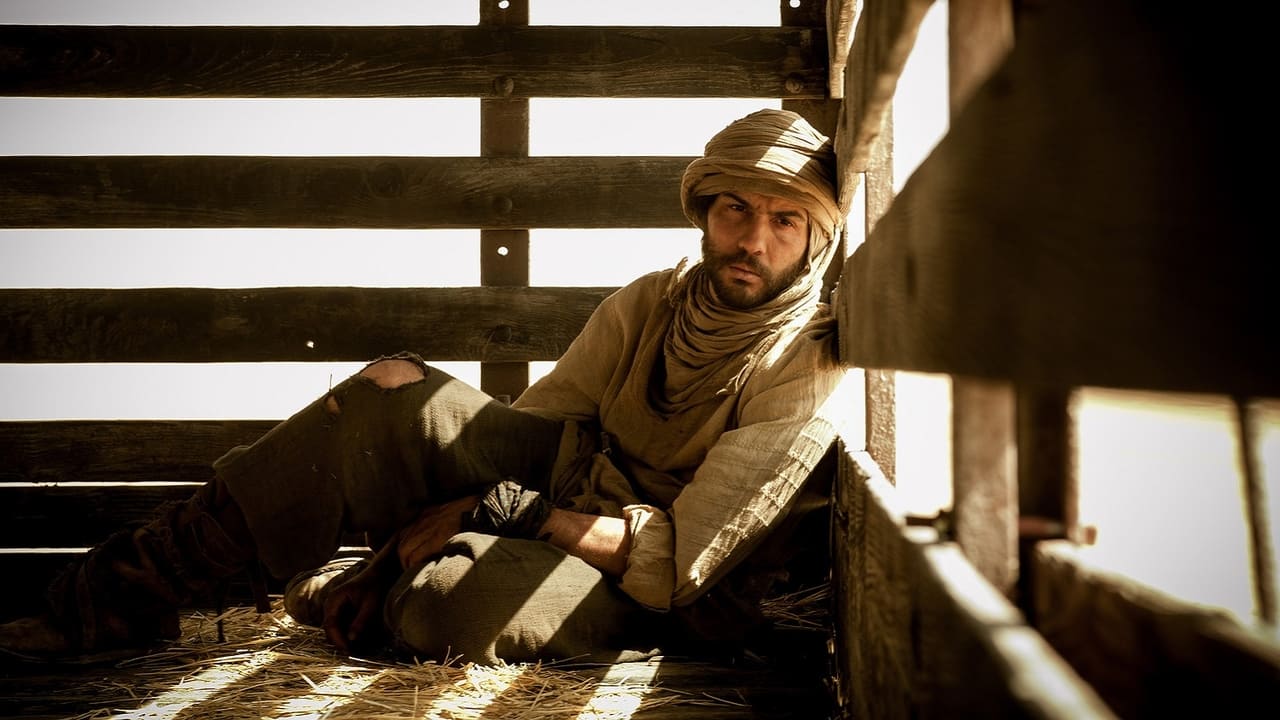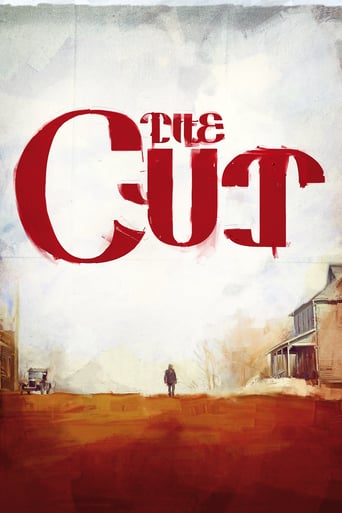Tockinit
not horrible nor great
Holstra
Boring, long, and too preachy.
Breakinger
A Brilliant Conflict
Glucedee
It's hard to see any effort in the film. There's no comedy to speak of, no real drama and, worst of all.
Radu_A
Since I got to live in Turkey once for a year out of romance, I can honestly say that I love the place. I learned the language and developed an intense taste for Ezogelin and the ingenious music of Mercan Dede, Aynur Doğan and Ogün Sanlısoy. I got to know that the greatest poet of the 20th century - Nâzım Hikmet - was from Turkey. And I got to know that the one issue you cannot talk about is the Armenian genocide. One meets a teacher of English in Ankara or a martial arts instructor in Fethiye, one talks to Kurdish musicians in Diyarbakir or a CalState-educated engineer in Istanbul, and always encounters the same all-encompassing culture of denial – even though there is no discrimination against Armenians today, who have an active cultural life. However this is supposed to be a review. "The Cut" is the fictional story of Nazaret Manoukian's unlikely survival of being pressed into the Turkish army, where he works in road construction. Eventually, the Armenian men are forced to either convert to Islam or die. The man assigned to kill Nazaret just stabs his throat, piercing his vocal cords and turning him mute – which is what the title alludes to. Nazaret finds shelter with an Arab and works in his tannery. After the war is over, he learns that his twin daughters are still alive, and embarks on a long journey across the world to find them.Alas, what was designed by director Faith Akin to kindle a discussion of the Armenian genocide and was intended as a conclusion to his master pieces "Head On" (2004) and "The Edge of Heaven" (2007) is a failure. As noble as Akin's intentions are, the ingenuity and acting presence of his previous films is gone. Tahar Rahim is decidedly miscast for the main role, as brilliant as he might have been in "A Prophet" or "The Past". He is much too young and plays the part in a vacant, uninvolved manner. Ironically, Simon Abkarian, who would have been perfect, appears in a small supporting role. The horrors of the genocide, while shown in part, are actually downplayed so as not to completely offend Turkish viewers – which did not work at all and did not shelter Akin from intense criticism. For Western viewers, the imbalance between the rather short wartime story – which is of principal interest – and the long, long, loooong journey of the main character to find his daughters makes the film a bore. Were the approach to the genocide less timid, the weakness of the acting and script would be forgivable. But as it is, "The Cut" is nothing more than a interesting failure; a failure well worth seeing to understand how difficult a subject the Armenian genocide still is, but not worth seeing as a film. Hopefully, one day someone will find the courage and budget to adapt "The 40 Days of Musa Dagh" by Franz Werfel, the greatest and most inspiring story about this subject, published on the eve of Hitler's rise to power and a terrifying reminder of the shape of things to come back then and now.
kosmasp
Faith Akin really likes personal stories. And it shows here, where you have a big part of Armenian history, which isn't talked about much as Sid Haig told me at Convention. But something that is very real for the people and part of their heritage and history, they haven't dealt with that much.It's also a topic that you won't be likely to see in a Hollywood movie. So this international production helps shed some light on it. By going personal, it makes it more relatable. It also makes it open for discussion if it should be broader and show many more things that went down during that time. You could argue about the ability of most people to talk in English, but that has been done many times and is to make this more accessible worldwide and should not distract you too much from what the movie tries to tell you
danielvukicevic
Not a movie for every ones taste, because this movie is quite hard stuff because it's content is about a genocide. In some of the scenes i got goosebumps because of the emotional character of the scenes (especially when Armenians got killed or when the protagonist had to kill his sister in law, when he was angry about "god"). The finding of his child in the 2nd part of the film was a little bit sluggish, but also these sluggish scenes created an atmosphere how hard it was to find his daughters. Like my forerunner said, for my taste it had been a good movie and it is NOT for everyone's taste. If you like Science-Fiction or would like to watch a cuddle movie, don't watch this one.
Mina Kirollos (mskirollos)
Faith Akin's epic tale of hope and survival, set in the time of the Armenian Genocide amidst the Great War and the resulting diaspora all over the world. I watched 'The Cut' lately during the London Film Festival, and found it worth the time in general and definitely had its good moments. It did not go for over-sentimentality and didacticism but rather showed an impressive journey of search and survival. For me, the wide shots in the desert and in the streets of Cuba were special, and there was very good work with costumes and set decoration. Some might argue that Armenians and Turks speaking English felt unnatural but it was totally justified for me. However, the film fell short in several aspects, and during viewing I constantly had the feeling that much more could have been done with the powerful story that could have greatly enriched and added more depth to the end-product. The poor screenplay dialogue was the most obvious shortcoming in the film, and while its over-simplicity can be regarded by some as appealing minimalism, it remained a huge disappointment. One scene epitomised the problem here, when the protagonist discovered that his daughters were still alive, his friend shouted exuberantly with no more than "This is good .. this is good ". It is possible here that using the English language presented a problem. The contrived ending was, to a lesser extent, irritating as well but the slow camera work saved it. I found a particular scene very interesting, when the Turks were evacuating the Syrian city and a Turkish boy got injured by a thrown stone, and the protagonist's reaction, and I wish there were more of these side stories, like watching Chaplin's 'The Kid'.In addition to screenplay, several techniques could have added more to the story; exposition by flashbacks at different parts of the journey (some dreams were deployed but to a limited effect), voice- overs contemplating the condition of humanity at the time of war. A good soundtrack could have made a big difference as well, and in such a film I think dispensing of such a poor soundtrack altogether could have yielded a better result and added a minimalistic touch, although of course this would have been difficult with the protagonist speech handicap and the lack of a narrator. The challenging task for the main actor, to rely entirely on facial expressions and body gestures because of handicap early in the narrative, was met by a solid performance, but could be easily overlooked by general audience because of the shortcomings of the other narration elements.An impressive story of survival, and a very important yet overlooked subject in recent history compared with others of even less scale, but less impressive film. The beautiful shots and powerful story were not enough to elevate it to the epic legendary status, but it is still worth watching.

